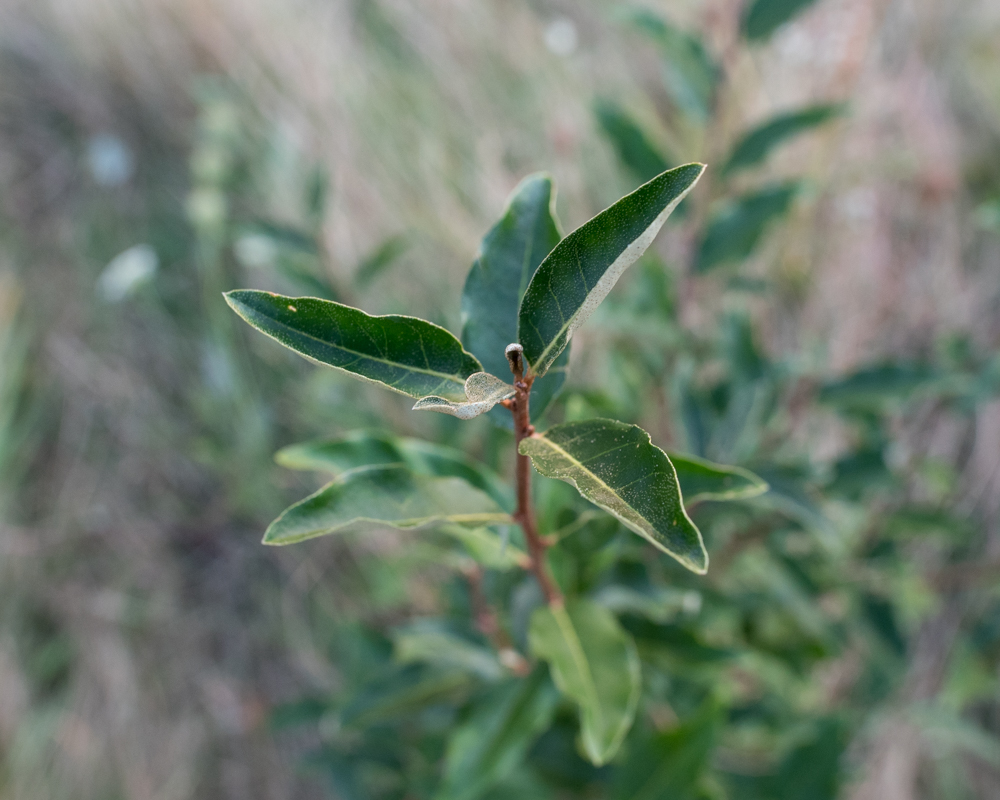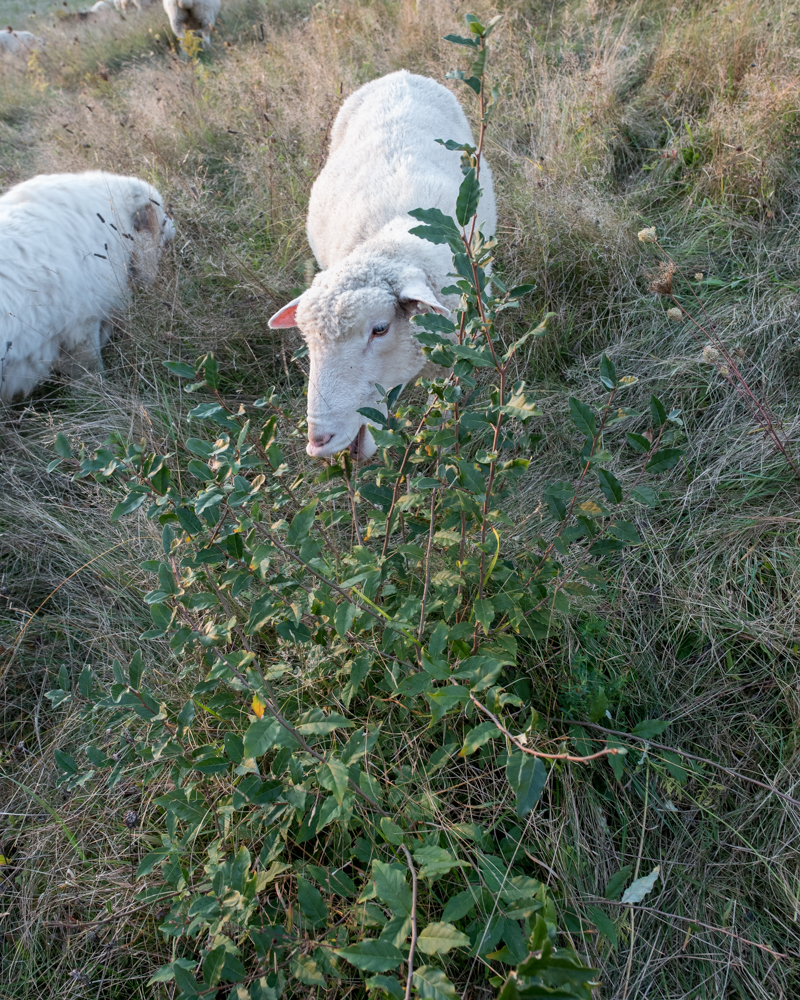I’m fascinated by stories of the introduction of species we now consider invasive, florid failures of good intentions: starlings introduced by a Shakespeare fanatic, gypsy moths brought to create a stronger silk industry. Autumn olive (Elaeagnus umbellata), a shrub known for invading and taking over pasture, might win the irony prize, since it was widely distributed by conservation districts to control erosion and provide wildlife habitat from the 1940s until the 1970s. When conservation folks recognized its aggressive tendencies, the plant was already widely established in the Northeast and Midwest, shading out native plants in its wake.
I was somehow largely unaware of this green menace — not sure if I hadn’t encountered it or was too clueless to notice it — but it’s turned out to be a very popular plant on the Woodbury farm, growing large and small almost everywhere I look. It’s kind of a handsome plant, with leathery dark green leaves.

As invasives go, it seems not all bad. The sheep absolutely love eating the leaves,

and the plant is able to fix nitrogen the way legumes do. To the extent that it doesn’t shade other plants to death, it improves the soil fertility for them.
The orthodoxy is that autumn olive must be controlled, attacked really, as vigorously as possible: cut it, drench the cut stems with Roundup, repeat. I’m new to this plant, and I haven’t seen the sort of destruction folks claim it causes, but the scorched earth approach seems unduly harsh for a such a tasty forage plant, so I was pleased to find a dissenting view. Greg Judy, a grazing expert from Missouri, argues that we should learn to coexist with autumn olive: manage its spread by grazing the small plants and coppicing the big ones, and take advantage of the nitrogen fixation and high-quality forage. This sounds eminently reasonable, but the pasture will tell me next year if the approach is working.
Tagged: autumn olive, Elaeagnus umbellata, glyphosate, gypsy moth, invasive, irony, management, pasture, Roundup, scorched earth, sheep, starling, Woodbury